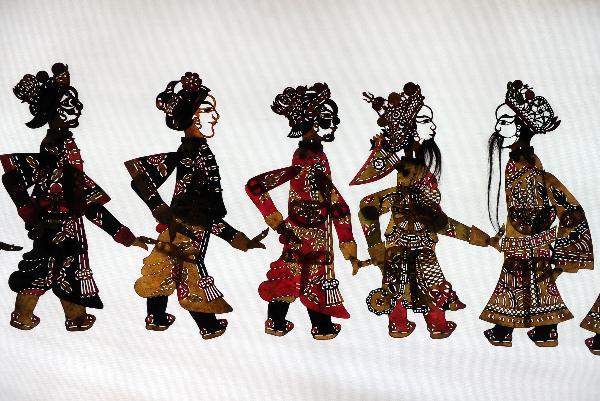
Photo taken on Oct. 12, 2010 shows the collections of shadow play puppets in He Zehua's museum in Shuidong Town, Xuancheng City of east China's Anhui Province. He Zehua is in his forties, and he is the nineth-generation practitioner and the director of the local troupe of the Wannan shadow play. With his passion on shadow play, he founded his free Wannan Shadow Play Museum in Shuidong Town early 2010. Shadow play, also known as shadow puppetry, is a folk performing art originating in China. The puppets, made of processed cattle skins, are manipulated behind an illuminated backdrop to create the illusion of moving images. It is an art form combined with painting, carving and folk cartoons. Wannan shadow play, a school of China's various shadow plays, can be traced to southern Anhui in the early Qing Dynasty. During the past 400 years, Wannan shadow play has made the traditional Chinese stories come alive for countless audiences. (Xinhua/Wang Lei)
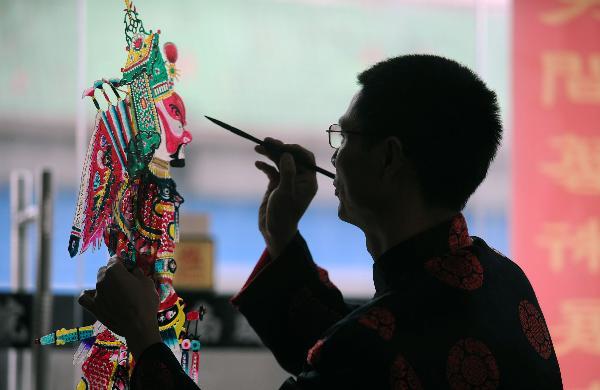
He Zehua colors a shadow play puppet in his museum in Shuidong Town, Xuancheng City of east China's Anhui Province, Oct. 12, 2010.
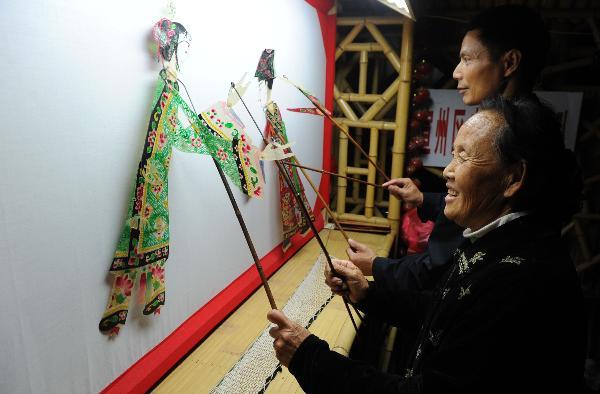
He Zehua colors a shadow play puppet in his museum in Shuidong Town, Xuancheng City of east China's Anhui Province, Oct. 12, 2010.

He Zehua colors a shadow play puppet in his museum in Shuidong Town, Xuancheng City of east China's Anhui Province, Oct. 12, 2010.
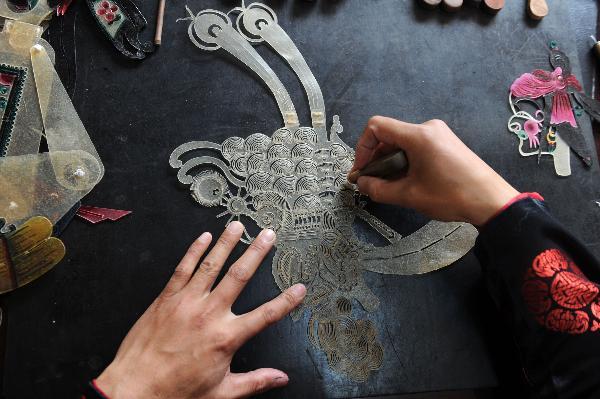
He Zehua carves a piece of leather to make a shadow play puppet in his museum in Shuidong Town, Xuancheng City of east China's Anhui Province, Oct. 12, 2010. (Xinhua/Wang Lei)
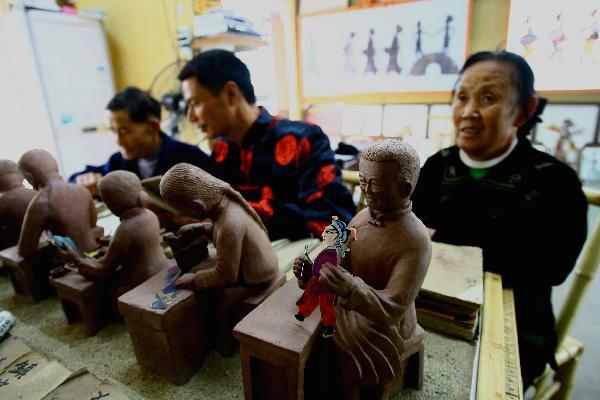
Photo taken on Oct. 12, 2010 shows the statues (front) demonstrating the procedure of making shadow play pappets in He Zehua's museum in Shuidong Town, Xuanchen City of east China's Anhui Province, Oct. 12, 2010. (Xinhua/Hou Dongtao)
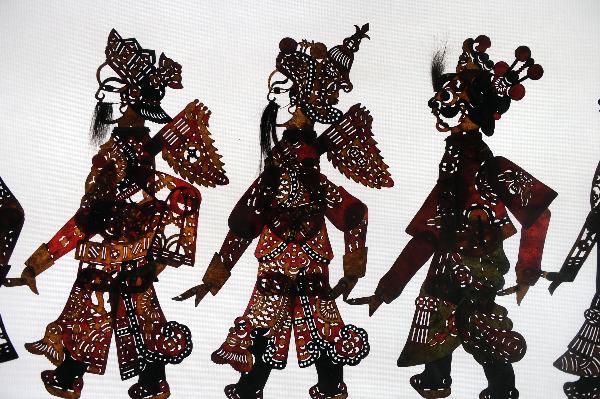
Photo taken on Oct. 12, 2010 shows the collections of shadow play puppets in He Zehua's museum in Shuidong Town, Xuancheng City of east China's Anhui Province.(Xinhua/Wang Lei)





